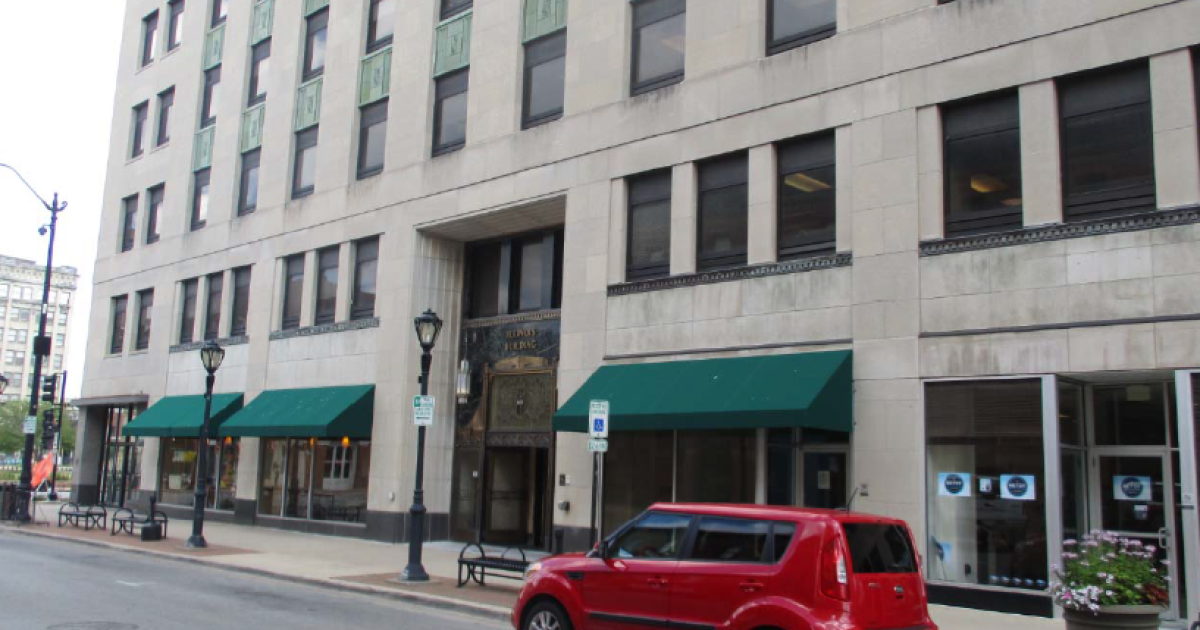Illinois Finance Authority pursues federal funds for its climate bank
5 min read
The Illinois Finance Authority, in its role as the state’s climate bank, is ramping up efforts to establish new financing options for green initiatives with a slate of federal funding applications in the works aimed at moving the state toward clean energy, climate, and equity goals.
The 2021 Climate and Equitable Jobs Act package, negotiated by Gov. J.B. Pritzker’s administration with lawmakers, labor, and environmental groups to put the state on a path to 100% clean energy by 2050,established the Illinois Climate Bank as part of the IFA.
The authority is making a play for an estimated $1.2 billion of funding opportunities authorized in the Infrastructure Investment and Jobs Act and the Inflation Reduction Act both under formula funding allocations and competitive awards.
“We are focused directly on how to obtain that funding and deploy it in a sustainable way,” said IFA Executive Director Chris Meister.
The funding would support efforts to establish grant programs, provide project financing, and leverage private capital to expand available financing tools — many of which won’t involve bond issues which have been so central to the IFA’s role as the lead state conduit agency.
The scope of work the climate bank plans to support cuts across a wide swath of environmental projects, from clean water, drinking water and wastewater treatment to helping the shift to electric government and transit vehicles and charging stations, and microgrids. Other goals include aiding the shift to solar power for nonprofits and public buildings, as well as other energy efficiency efforts with an eye on equity and accelerating private capital.
Work accelerated last November as the authority cast its eye on competitive federal grant applications and sought partners to support the applications and future deployment of programs. It is holding public engagement hearings to seek input and spread the word.
The authority classified about $233 million from its last state revolving bond issuance in 2022 as promoting clean water infrastructure projects and it completed about $23 million in transactions for Commercial Property Assessed Clean Energy, known as C-PACE, projects.
PACE allows a property owner to agree to additional real estate tax assessments to fund environmentally beneficial purposes. The assessments repay bonds amortized over the useful life of the project, which could range from five to 30 years. Chicago and Cook County also operate C-PACE programs.
With deadlines approaching and further guidance in hand, efforts are now ramping up with goals laid out between March and August.
The IFA plans to meet a March 31st deadline to submit to the Department of Energy a proposed spending plan for electrical grid resilience state formula grants approved in the Infrastructure Investment and Jobs Act.
The state expects to receive $8 million annually for five years for projects that improve reliability and resilience. If approved, the state could subcontract the award to cities, utilities or others for eligible uses like weatherization, fire prevention, microgrids, native tree planting, and undergrounding of lines.
The Illinois Climate Bank will manage the distribution of the grants “with a focus on targeting innovative approaches and funding gaps to improve reliability and resilience, particularly in disadvantaged communities that are least able to respond to power outages,” according to documents.
The IFA received an official letter of encouragement to apply for $138 million in federal funds under the competitive DOE Grid Resilience Innovative Partnerships Program and plans to submit the application in May. The application will focus on accelerating transportation electrification in rural and small-town communities.
The authority is partnering with the not-for-profit Elevate to pursue the Resilient and Efficient Codes Implementation funding opportunity from USDOE, and has received an official letter of encouragement to submit a full application.
The authority also has application in the works working with the Illinois Environmental Protection Agency for DOE Revolving Loan Fund formula funding and the Department of Treasury’s State Small Business Credit Initiative, a lending program that would provide up to $20 million for small business loans. An application will be submitted in April and the state then intends to get new products set up within 180 days.
Once up and running, borrowers interested in the small business program must go through a bank or financial institution enrolled in the program with the state.
“IFA will be exclusively focusing on providing its SSBCI-supported financing for the start-up and/or expansion of ventures directly involving environmentally-supportive, ‘green’ businesses, including those that address the adverse impacts of climate change,” according to authority documents.
The authority also is working with state agencies and the University of Illinois on an anticipated June application for a competitive funding allotment that could range from $50 million to $1 billion from the $27 billion pot of funding under the Greenhouse Gas Reduction Fund program funded in the Inflation Reduction Act.
The funding can be spent through September 2024. Decisions are expected in the fall.
The program directs $7 billion for competitive grants to enable low-income and disadvantaged communities to deploy or benefit from zero-emission technologies, including distributed technologies on residential rooftops.
“We want Illinois’ fair share of that $27 billion,” Meister said.
Another $12 billion is available for competitive grants to eligible entities to provide financial and technical assistance to projects that reduce or avoid greenhouse gas emissions, and $8 billion for competitive grants to eligible entities to provide financial and technical assistance to projects that reduce or avoid greenhouse gas emissions in low-income and disadvantaged communities.
Another iron in the fire is the development of a public sector revolving loan fund program that would rely on borrowing to support the electrification of public fleets.
The agency is also supporting the Illinois Environmental Protection Agency, which is the lead in an effort to secure a piece of $4.6 billion for competitive implementation grants for reducing greenhouse gas emissions and other harmful air pollution.
On the state legislative front, the finance authority backs House Bill 3340 which would smooth the way for municipalities to borrow directly from the authority.
The origins of the legislation stemmed from the February 2021 Texas storms that spurred an energy crisis driving pricing spikes for smaller, downstate Illinois communities.
The IFA tapped funds on hand to establish a loan fund to help municipalities with low cost loans to smooth out the pricing impacts.
“One of the things we found is that while IFA has broad powers to issue bonds and lend to municipalities and local governments, they were limited in their ability to borrow from the IFA,” Meister said. The authority was able to complete $7.9 million of loans to 14 local governments through existing statutes, but it was a complicated process.
Longer-term goals for the Climate Bank involve securing Department of Energy federal loan guarantees for $10 billion to $20 billion of investments and deploying new standardized financial tools to reduce the cost of decarbonization for the populace and marginalized businesses.
“We are using these federal resources as steps toward” those goals, Meister said.
Pritzker signed the legislation in September 2021 with goals that include putting one million electric vehicles on state roads by 2030 and providing EV rebates for consumers, shifting to 40% renewable energy by 2030 and 50% renewable energy by 2040.
It phases out coal and natural gas plants, creates new workforce development programs to prepare workers and support communities in the transition to a clean energy economy, promotes equitable investments in Illinois’ new clean energy economy, establishes ethics requirements and oversight for public utilities, state officials, and state employees, establishes transition programs and assistance to support the impacts of the clean energy shift.







